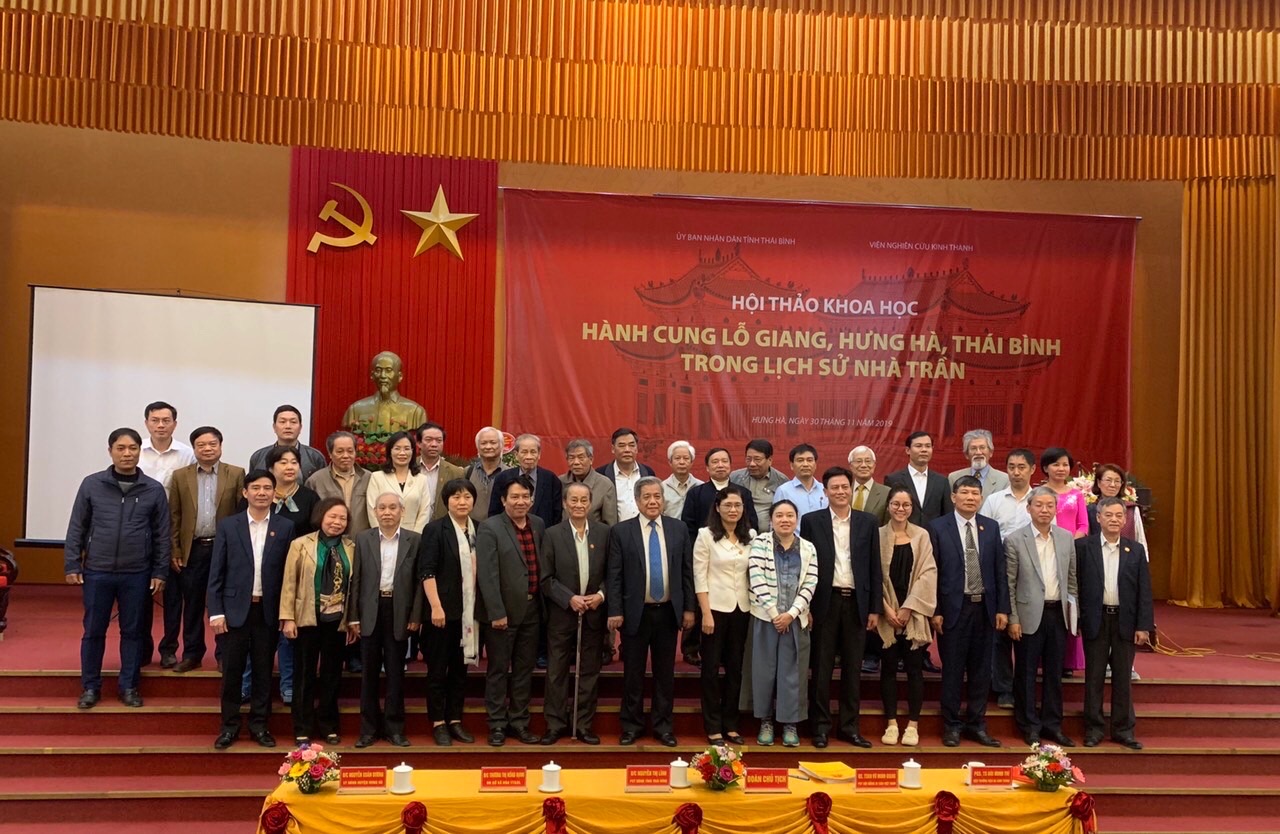
Xiao Ailing, associate professor of School of History and Civilization, was invited to attend the “International Conference on Lỗ Giang Temporary Palace, Hưng Hà district, Thái Bình province in the history of Trần dynasty (13th-14th centuries)” and gave a keynote speech on “Rethinking the Construction of the National Archaeological Site Parks of Weiyang Palace and Daming Palace”. Held from November 29 to December 1, 2019, the conference was jointly organized by Institute of Imperial Citadel Studies – Vietnam Academy of Social Sciences and Thái Bình Provincial People’s Committee. Before the conference, Xiao Ailing visited the showroom of the Institute of Imperial Citadel Studies, The Imperial Ancestral Temple of Trần dynasty, The Emperor’s Mausoleum and The Ruins of Lỗ Giang Temporary Palace, and afterwards she also paid a visit to the Imperial Ancestral Temple College and the Imperial Citadel of Thang Long.
Based on the field research and the vivid explanations given by the director of the Institute of Imperial Citadel Studies and others, Xiao Ailing proposed that the investigation of the internal structure and organization relationship between Vietnam’s Imperial Ancestral Temple of Trần dynasty and the Emperor’s Mausoleum as well as between the capital and the palace or the imperial villa should be carried out in broader historical background and space, so as to understand better their unique forms and rich connotation in specific historical period, and meanwhile to compare them with the characteristics of Chinese long history and colorful culture, which will demonstrate their significance in forming a link between the past and future as well as placing Vietnam in global context.
In addition, on the basis of her research experience, Xiao Ailing came up with opinions for the protection of The Ruins of Lỗ Giang Temporary Palace, which, according to her, have lots in common with The Ruins of Weiyang Palace and The Ruins of Daming Palace (Weiyang Palace was the capital of Western Han Dynasty and Daming Palace, Tang Dynasty). First of all, all of them were the political center of the country, and thus reflecting the political systems and structures of their respective eras. Second, they have all become underground sites without ground architecture, i.e, earthen sites. Following this, their third feature in common is that they all require in-depth excavation and further research done by archaeologists and historians to uncover their universal values to meet the social demand for cultural consumption of history. Hence, after summarizing China’s successful experience in the protection and utilization of The Ruins of Weiyang Palace and The Ruins of Daming Palace as well as identifying areas for improvement, Xiao Ailing maintained that the key to the successful protection and utilization of The Ruins of Lỗ Giang Temporary Palace lies in adequate attention and support given by governments at all levels as well as their willingness to cooperate. Besides, she suggested that Lỗ Giang Temporary Palace be awarded the title of “A Major Historical and Cultural Site Protected at the National Level” and be financially supported by the nation.
Her speech met with broad agreement among other participants, and officials from Thái Bình province and Hưng Hà district said that this presentation would help them take further steps in the right direction.